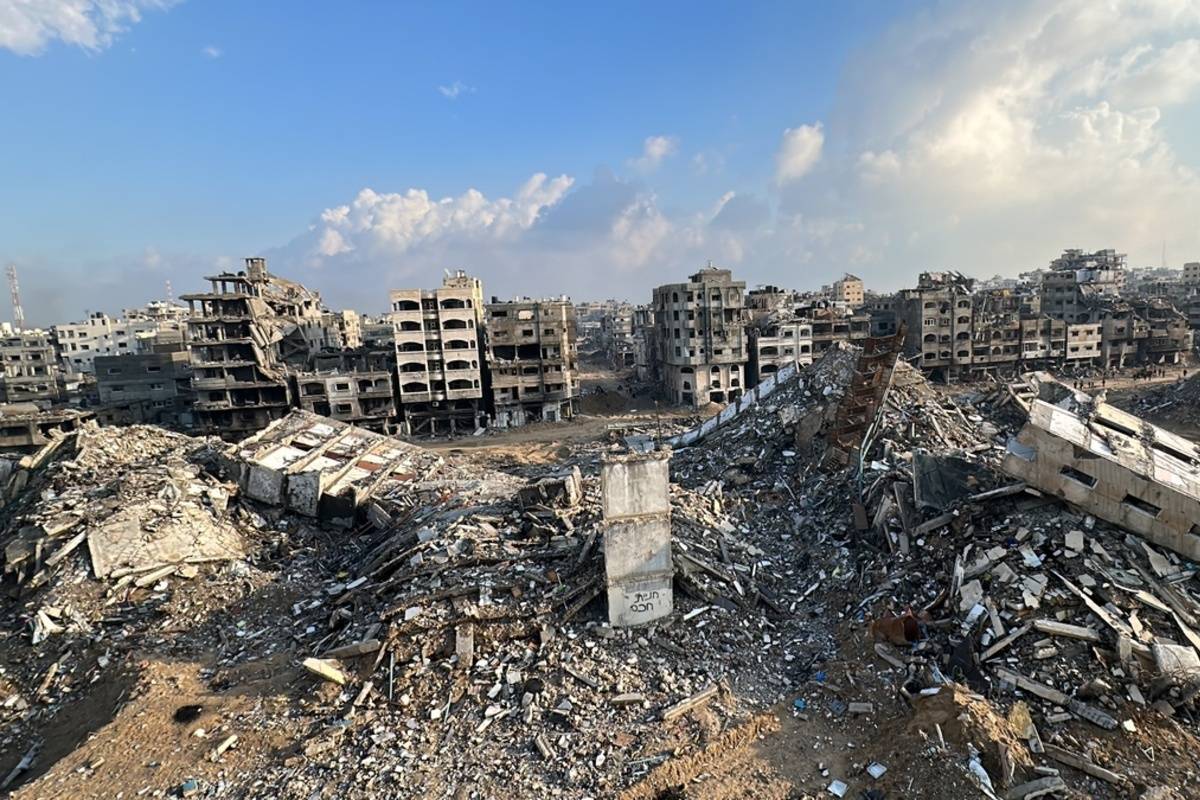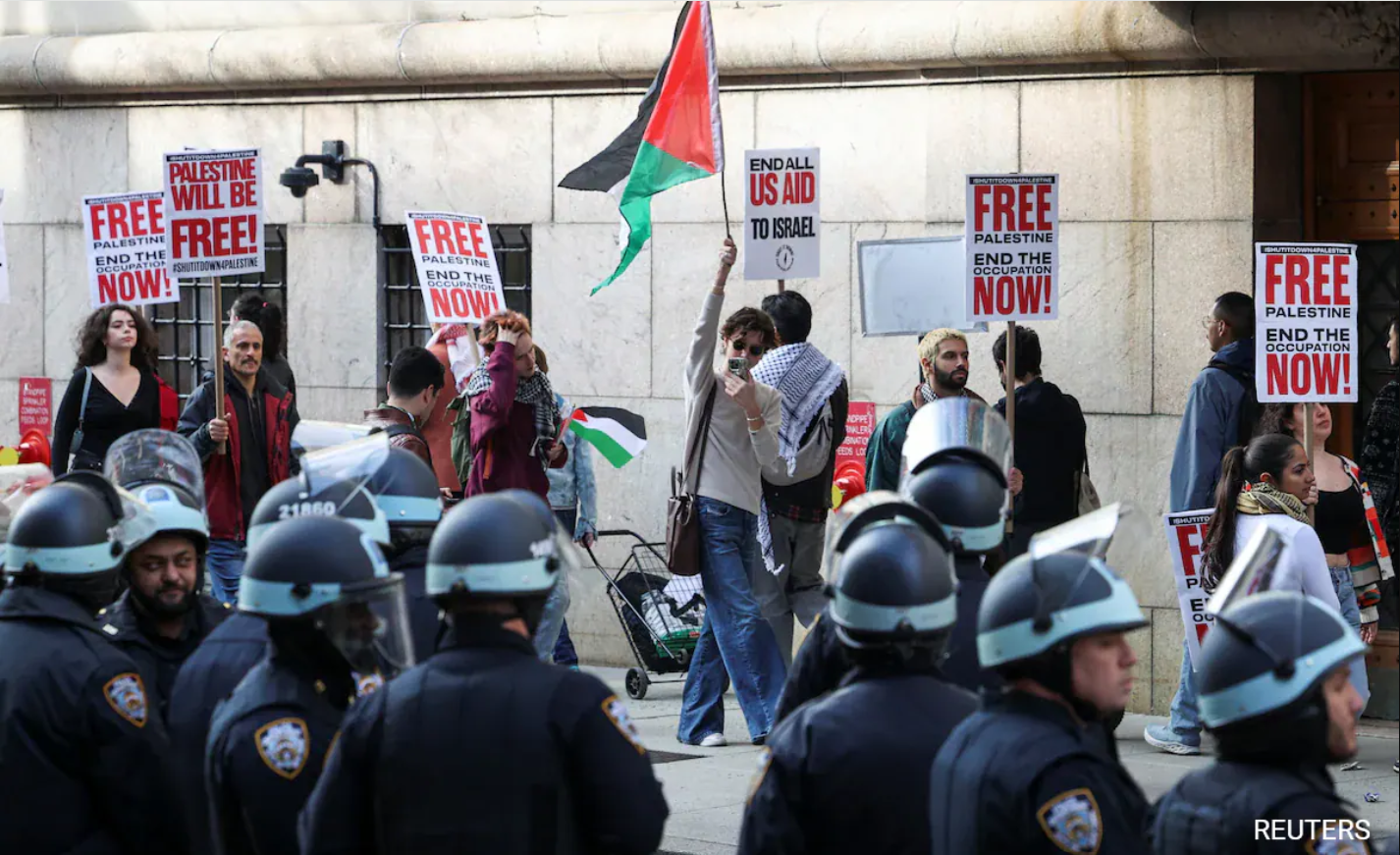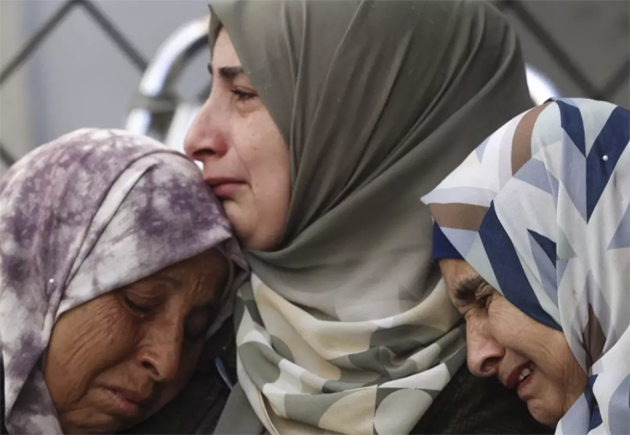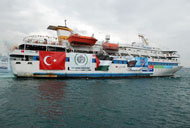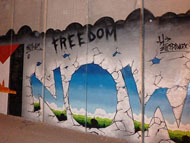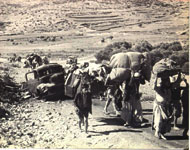
Over the last few weeks I have been repeatedly told that Ramallah is not the ‘real’ Palestine. For this, I was told, I must travel further afield, go north, go south, go into Nablus or Hebron. I was unsure of what people meant when they said the ‘real’ Palestine. Do they mean more conservative communities? Or towns where there is not the easy access to cocktails and continental cuisine such as that found in Ramallah? Do they mean the villages separated by the wall?
The other day, I finally experienced the ‘real’ Palestine. It was not in the tense streets of Hebron or amongst the active demonstration in Bil’in, but here in Ramallah, in Al Amary refugee camp.
As I walked around the quiet and cramped alleyways of the refugee camp, I struck up a conversation (with the help of someone who could translate) with two women sitting and talking outside one of their homes. I wanted to know where they were from originally and one woman explained that she had come from a small village which she had been forced to leave in 1948 - she was eight years old at the time.
After being invited into their homes to continue the conversation, what followed was a powerful introduction to what the ‘real’ Palestine is.
One of the women is named Amna but she prefers to be called Um Mohammed, meaning ‘the mother of Mohammed’, her eldest son. She was eager to talk about her past and tell her story.
Amna, 71, spoke of the village where she was born along with her brothers and sister. Beit Affa, near Ashkelon, was once home to many Palestinian families. She described how it had been a village of peasants who had planted their own vegetables, an idyllic spot surrounded by trees. When she was eight years old, however, this picture of rural tranquility was disrupted. Jewish forces began to attack the village. Most people took to hiding in their homes to avoid the snipers who would shoot those on the street. Amna’s memory is strong and she has little trouble in recalling both her own experience but also the military exercises that were taking place at the time, something which must have been explained to her later. She remembers the Egyptians flying over with their planes and promising the Palestinian people that they would reclaim any villages captured by the Jewish forces. However, the Egyptians were unable to stop the night raids taking place and the Palestinian people took to fleeing into the woods. From that point on, they were unable to return to their homes.
Amna recalled that, at the time, she didn’t fully understand the situation or why, as they ran from building to building, her brother kept forcing her head down (out of the line of bullets) – her overriding memory is of continually tripping over because of her brother’s actions to save her life. She laughed at her girlish naivety. Amna can still remember the names of most of the villages she moved around. She can remember that the Egyptians tried to reassure the fleeing Palestinians that any land that was taken by Jewish forces would be recaptured by the Egyptians that night – something that obviously didn’t happen. Amna recalls how, every morning, her family tried, unsuccessfully, to re-enter the village from which they had just fled.
Amna also talked of everything that they had left behind. Under the illusion that they were going to be able to return in a couple of days, most families left the majority of their belongings at home and simply hid the most precious. Amna and her family had wrapped and hidden any gold or money that they had within their house, believing they would be back to retrieve it once the fighting was over. They left chickens and cows in the village and only took one camel to carry their mattresses.
The family moved from village to village, eventually settling in Gaza. But this was not the end of Amna’s journey. Now married and with children, she was persuaded by her brothers to move to the West Bank in the 1960s for a better way of life. As she departed, she had been warned that she may not be able to return to Gaza.
Her and her young family initially moved to a house outside the camp but it had been too expensive for them so they took a place inside Al Amary which was half the price and that is where they have remained.
Through all this displacement, I ask her about how she feels for the village of Beit Affa. She tells me she longs for the village. Both her and her family dream of returning to the place they are from, despite her children never having visited it. But Beit Affa is no longer in existence. During the fighting of 1948, the village was completely obliterated.
In a moment of sad reflection, she laments all the people who were killed at the time she was forced to flee. The mix of pain and nostalgia when talking about her past are evident on her face. The event took place over 60 years ago and yet, as Amna herself asks, ‘Does anybody forget where they are from?’
Amna has not forgotten her Palestine. For her and so many others the ‘real’ Palestine is the home they remember and the life they used to live, not the modern day reality of the refugee camp. The ‘real’ Palestine surely has to be the people and their individual histories. Whether they live in an apartment block in Ramallah or a farm in the South Hebron hills, it is them and not their current situation that defines them.
Background – Over 400 Palestinian villages were destroyed in the run-up to the declaration of the State of Israel in 1948. 800,000 Palestinians were displaced, resulting in over 4.5 million registered Palestinian refugees around the world today.
Harriet Straughen is a Writer for the Media and Information Department at the Palestinian Initiative for the Promotion of Global Dialogue and Democracy (MIFTAH). She can be contacted at mid@miftah.org.




